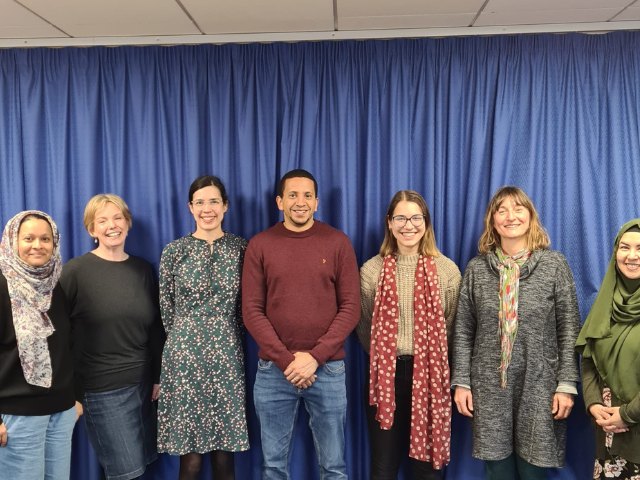
From catching the "research bug" to tackling antibiotic resistance
19 November
Did you know that about half of women will experience at least one urinary tract infection (UTI) in their lifetime and approximately 6% of women have recurrent urine infections (rUTIs)?
With many of these infections being treated with antibiotics, concerns have been raised among scientists that overprescribing may be contributing to the growing problem of antimicrobial resistance (AMR), in which bacteria develop resistance to antibiotics that have been traditionally used to treat them.
This World Antimicrobial Resistance Awareness Week, the global spotlight is on efforts to combat AMR - a pressing health issue threatening our ability to treat infections effectively.
Dr Leigh Sanyaolu, a General Practitioner and Health and Care Research Wales /NIHR Doctoral Fellow at the Cardiff University, is addressing this issue by researching how best to manage recurrent urinary tract infections (UTIs) in women. His work focuses on developing a decision aid to support women and healthcare professionals in choosing the most effective, evidence-based treatment options while minimising the risk of antibiotic resistance.
Early career
Starting with a degree in medical biochemistry, Leigh was drawn to the “why” of science. However, his desire to work directly with people made him change his mind and pursue a career in medicine. Dr Sanyaolu discovered his passion for research while undertaking surgical rotations and "definitely caught the research bug”. During this time he published a few studies: the first reviewed findings from a camera test for swallowing issues, while the second—a 10-year study on severe burns in children—sparked his interest in epidemiology and disease trends.
In the end, he found general practice provided both diversity in his day-to-day work and personal interaction with patients which ultimately led him to his current position at Cardiff University, where he continues to balance his academic work with clinical practice in South Wales.
Health and Care Research Wales /NIHR Doctoral Fellow application
Crucial insights for his application came from public involvement members. Dr Sanyaolu consulted directly with women affected by recurrent UTIs to understand their treatment needs and concerns and let it guide his research. Dr Sanyaolu said:
“Working with patients added real value to my application.”
Three women with lived experience of recurrent UTIs were recruited to help shape his study, more than three months before his funding even started, and they continue to collaborate closely with Dr Sanyaolu to this day.
Current research
Dr Sanyaolu’s current project, IMproving Prophylactic Antibiotic use for Recurrent Urinary Tract infection (IMPART), focuses on creating a decision aid for patients and healthcare professionals to make informed choices about treatment. Using several sources including interviews with women with rUTIs and healthcare professionals, published trials and analysing anonymised data from the SAIL Databank, he aims to identify the benefits and risks of both antibiotic and non-antibiotic treatments. This work could help reduce long-term antibiotic use, ultimately benefiting patients and the wider public. The final findings from his study will be published in 2025.
Faculty support and training opportunities
Dr Sanyaolu said that receiving the fellowship "reaffirmed my passion for research" and gave him “the headspace and time” to develop his research, build connections and focus on his research ideas.
He automatically became a Health and Care Research Wales Faculty member upon receiving his funding. The Faculty offers valuable resources and connections that can help develop research careers. Dr Sanyaolu said:
The Faculty has been instrumental in helping me develop my research skills and connect with mentors. Being part of this network has opened doors to training and collaboration opportunities I couldn’t have accessed otherwise.”
Next steps
Dr Sanyaolu’s work will continue to focus on enhancing treatment options for women with recurrent UTIs.
The Health and Care Research Wales Faculty offers extensive support and mentorship for researchers. To learn more about how you can access Faculty resources, check out the Faculty’s funding and awards.